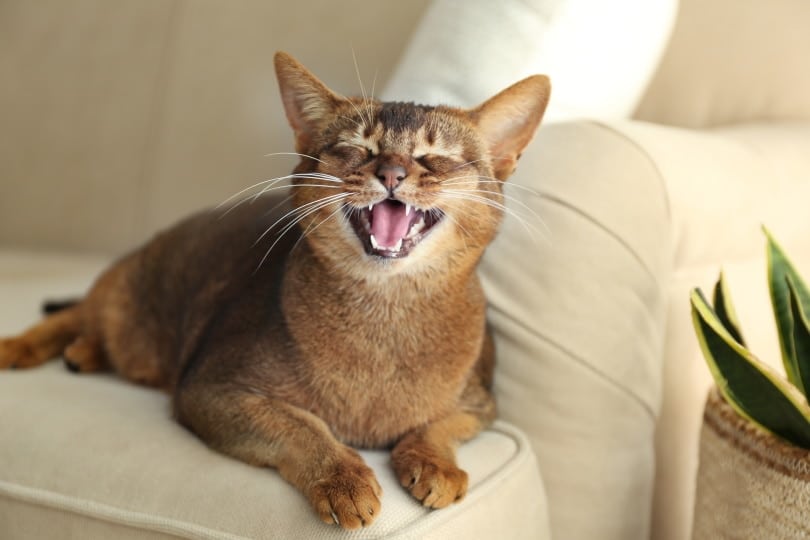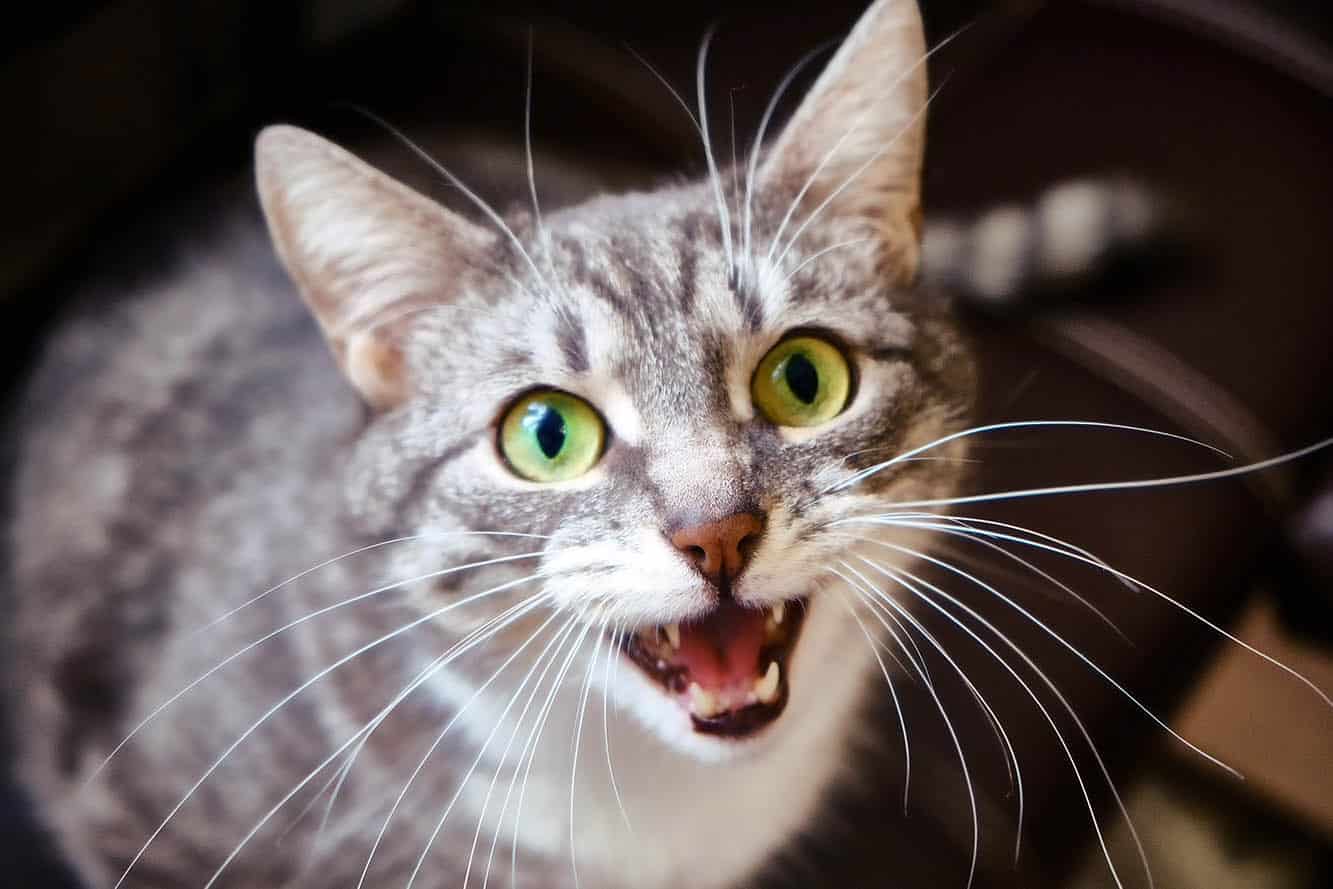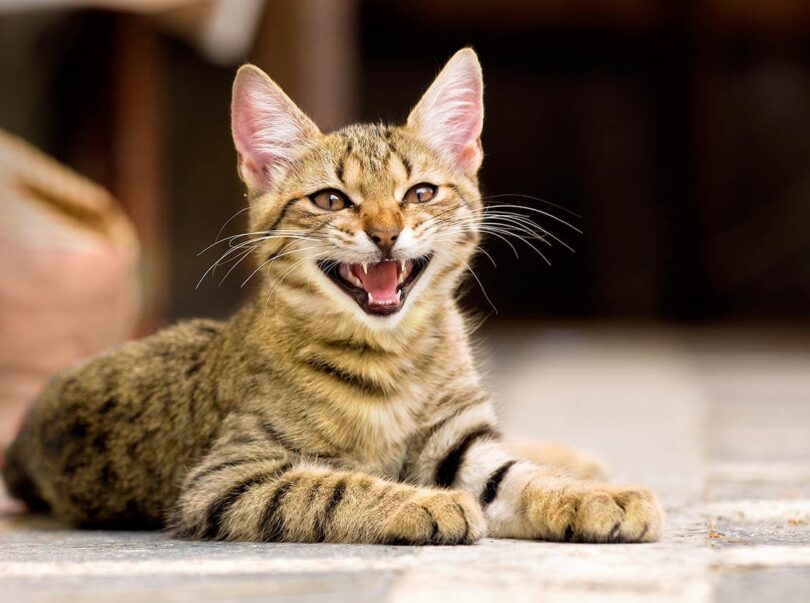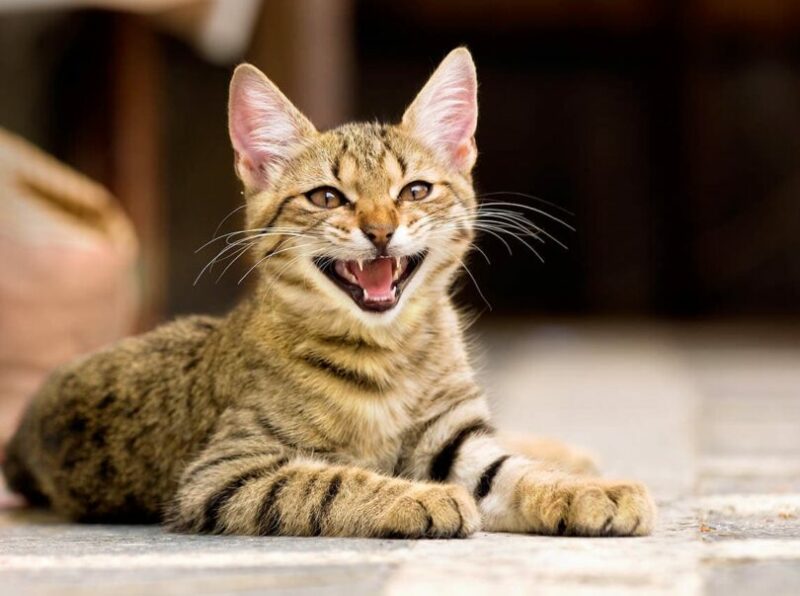If your cat constantly wakes you up at the crack of dawn meowing for food, you might have threatened to trade them in for a quieter model out of frustration! Okay, not really, but it is fair to wonder if all cats meow, and if so, are they all this loud? All (healthy) cats meow, but their sounds, when they meow, and how often vary considerably.
In this article, we’ll tell you how and why cats meow, plus let you know a few breeds known for being incredibly talkative. We’ll also discuss what to do if your cat suddenly seems to “lose its voice,” including potential causes.

How Cats Meow
To produce the variation of sounds collectively known as a “meow,” cats use vocal folds similar to human vocal cords. They are located in the cat’s larynx. Meowing occurs when air passes over these vocal organs.
Besides meowing, cats produce many other sounds, such as purring, hissing, spitting, yowling, and chirping. Altogether, researchers believe cats can make a total of 12 separate vocal communication sounds. Some are specific to certain situations, such as mating sounds by both male and female cats.
Certain exotic cat breeds, primarily the Siamese and Abyssinian, are known to be highly talkative by nature. Outside of those breeds, the type and frequency of a cat’s meow vary.

Why Cats Meow
As you probably assumed, cats meow as a form of communication. However, did you know that adult cats generally don’t meow at each other to “talk?” Meowing between cats is most common as mother-kitten communication.
Adult cats usually rely on other forms of communication, like scent and body language, for their own interactions.
Cats save meowing as their preferred method of communication with humans. Before you feel too touched by this gesture, remember that it essentially means cats regard our communication skills on the same level as baby kittens!
While cats may use meowing to talk to us, their message may get lost in translation. According to a 2020 study, humans are limited in understanding specific messages the meow communicates. However, humans most familiar with cats are more likely to identify specific tones correctly.
Cats use different meow sounds and other vocalizations to communicate emotions like contentment and stress. They often meow when they want something, such as food or attention. Increased frequency of meowing can occur as the cat ages, sometimes as a medical condition symptom.

What if My Cat Stops Meowing?
As we mentioned, some felines meow only rarely. However, if your cat is usually a talker and suddenly seems to lose its voice or produce only weak, raspy, hoarse meows, something could be wrong.
Like humans, cats can suffer from laryngitis or inflamed vocal cords. Aside from a change in your cat’s meow, you may notice other symptoms of this condition, including:
- Trouble swallowing
- Noisy or difficult breathing
- Holding the mouth open
- Nasal discharge
- Cough
- Bad breath
- Lethargy
Several medical issues can cause laryngitis and the loss of the cat’s meow. These include trauma or a physical obstruction (like a growth or tumor) in the larynx. Respiratory infections, inhaled irritants such as smoke, or paralyzed nerves could also be responsible.
Overproduction of thyroid hormones, called hyperthyroidism, can also lead to laryngitis. Interestingly, hyperthyroidism is also a common cause of increased meowing, especially at night, in older cats.
If you notice a change in your cat’s meow, contact your veterinarian to have them checked out.

Conclusion
Whether you find your cat’s meow adorable or annoying, you can expect to continue hearing them voice their opinion! While meowing is normal, too much could indicate something is wrong. If you’re concerned your cat is meowing too much or has stopped entirely, don’t hesitate to call your vet. They can help rule out a medical cause for all the chatter and discuss possible behavioral reasons once they do.
Featured Image Credit: Stanimir G.Stoev, Shutterstock






